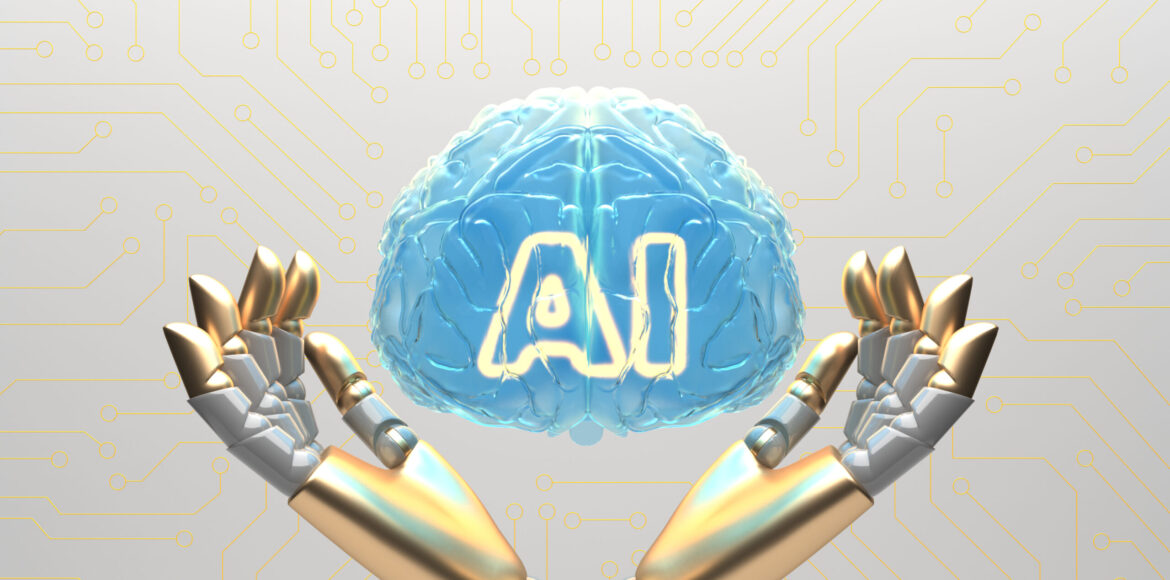
In recent years, artificial intelligence (AI) has started to make a significant impact across various industries, and healthcare is no exception. Among the leaders in embracing AI technologies in healthcare is the Centers for Medicare & Medicaid Services (CMS), a pivotal organization in managing healthcare services and insurance in the United States. As the demand for more efficient, cost-effective, and quality healthcare grows, CMS has implemented several AI initiatives to improve operations, enhance patient care, and streamline administrative processes.
This article delves into the various ways AI is transforming the healthcare landscape at CMS, exploring its initiatives, impact, and potential future applications.
Understanding the Role of CMS in Healthcare
Before diving into CMS’s AI initiatives, it’s crucial to understand the role of the Centers for Medicare & Medicaid Services (CMS). CMS is a federal agency within the U.S. Department of Health and Human Services (HHS) that oversees several government health programs. These include Medicare, Medicaid, the Children’s Health Insurance Program (CHIP), and the Health Insurance Marketplace. CMS plays an essential role in providing access to healthcare for millions of Americans, making it a critical player in the healthcare system.
The agency is tasked with not only administering these programs but also ensuring the quality and affordability of the services provided. This responsibility puts CMS at the forefront of healthcare policy and innovation, making it an ideal candidate for adopting AI technologies.
What Are AI Initiatives at CMS?
The term AI initiative refers to the various projects and programs that CMS has launched or adopted to integrate artificial intelligence and machine learning technologies into its operations. These initiatives are designed to enhance service delivery, improve patient outcomes, reduce costs, and address inefficiencies within the healthcare system.
The CMS AI Strategy
CMS’s AI strategy focuses on improving the efficiency and effectiveness of healthcare delivery. This involves automating processes, improving decision-making with AI models, and optimizing patient care through predictive analytics. Key aspects of this strategy include:
- Data-driven decision-making: AI helps CMS leverage large datasets to make informed decisions, reducing administrative burden and improving healthcare outcomes.
- Predictive analytics for patient care: AI models analyze patient data to predict potential health risks, allowing for proactive interventions.
- Automation of administrative processes: From billing to claims processing, AI is streamlining routine tasks, improving accuracy and reducing costs.
Machine Learning for Better Care Coordination
One of the most significant AI initiatives at CMS involves using machine learning (ML) to improve care coordination. By analyzing large volumes of patient data, machine learning models can identify patterns and make predictions about a patient’s future health needs. For instance, AI can predict hospital readmissions or identify individuals at risk of chronic diseases.
This predictive ability helps healthcare providers intervene earlier, improving patient outcomes and reducing healthcare costs. Moreover, AI-driven systems can automate the assignment of appropriate care resources, ensuring that patients receive the care they need in a timely manner.
AI in Fraud Detection and Prevention
Another notable AI initiative at CMS is using artificial intelligence to combat healthcare fraud. Fraudulent activities, such as overbilling and identity theft, can lead to significant financial losses and undermine the healthcare system’s integrity. CMS is implementing AI algorithms to analyze claims data and detect anomalies that may indicate fraud.
By flagging suspicious claims in real-time, AI can help CMS take immediate action to investigate and prevent fraudulent activities. This not only saves money but also ensures that resources are allocated to those who truly need them.
AI for Enhancing Patient Experience
While AI’s role in administrative tasks is essential, its potential to improve patient experience is equally important. CMS is leveraging AI to ensure that patients have better access to healthcare services, receive more personalized care, and benefit from more efficient treatment processes.
Virtual Health Assistants
AI-driven virtual health assistants are becoming increasingly popular for helping patients navigate the healthcare system. These virtual assistants use natural language processing (NLP) to understand patient inquiries and provide tailored responses, offering guidance on appointments, medications, and more.
By automating basic inquiries, virtual health assistants free up healthcare professionals to focus on more complex patient needs. They also help patients get timely information, improving their overall experience with the healthcare system.
Predicting Patient Needs
Predicting patient needs is a key component of personalized healthcare. AI tools help identify which patients require immediate attention or are at risk of developing certain conditions. Through predictive modeling, healthcare providers can offer targeted interventions and preventive care measures, ultimately leading to healthier outcomes and a better experience for patients.
Benefits of AI in CMS Healthcare Programs
The integration of AI technologies into CMS programs offers numerous benefits, not just for CMS as an organization, but also for healthcare providers and patients. Let’s explore some of these advantages in detail.
Improved Operational Efficiency
One of the most immediate benefits of AI for CMS is enhanced operational efficiency. Automating routine tasks such as claims processing, patient data entry, and appointment scheduling frees up human resources to focus on more complex tasks. This automation leads to reduced administrative costs, faster processing times, and fewer errors.
Better Healthcare Outcomes
AI-driven insights and decision-making have the potential to improve healthcare outcomes significantly. By leveraging predictive analytics, CMS can ensure that patients receive timely interventions, reducing the risk of complications and enhancing recovery times. Early intervention also reduces the need for expensive treatments down the road.
Cost Reduction
AI’s ability to streamline administrative tasks and improve healthcare delivery directly translates into cost reduction. By automating processes, CMS can reduce its operational expenses. Additionally, the earlier detection of health issues through AI-driven predictions can prevent costly treatments or hospitalizations.
The Future of AI at CMS
As AI continues to evolve, CMS is likely to expand its use of AI technologies, creating new opportunities for improving healthcare services. Some possible future developments include:
Integration of AI with Telemedicine
Telemedicine has already seen significant growth, especially after the COVID-19 pandemic. By integrating AI with telemedicine platforms, CMS can enhance virtual healthcare experiences. For example, AI could be used to triage patients, recommend treatments based on symptoms, and assist doctors in making clinical decisions during virtual consultations.
Advanced Natural Language Processing (NLP)
As natural language processing (NLP) technology advances, CMS will likely adopt more sophisticated systems for analyzing and interpreting unstructured text in patient records. This would allow healthcare providers to gain deeper insights into patient conditions and improve the accuracy of diagnoses and treatment plans.
AI for Clinical Trials
AI could also play a pivotal role in improving the efficiency of clinical trials. By analyzing patient data, AI can identify suitable candidates for clinical trials and predict the likelihood of a trial’s success. This could lead to faster approval processes for new treatments, benefiting patients and healthcare providers alike.
Overcoming Challenges in AI Adoption at CMS
Despite the numerous benefits of AI, there are challenges to overcome before its widespread adoption at CMS. Some of these challenges include:
- Data privacy and security concerns: Protecting patient data is paramount. CMS must ensure that AI systems adhere to stringent privacy standards, including compliance with the Health Insurance Portability and Accountability Act (HIPAA).
- Integration with legacy systems: Many healthcare providers still use legacy systems that may not be compatible with AI technologies. CMS must work on integrating AI into these systems without disrupting operations.
- Bias in AI models: AI models can sometimes inherit biases from the data they are trained on. Ensuring fairness and equity in AI-driven decisions is critical, especially in healthcare, where biased decisions could have serious consequences.
Conclusion
AI is playing a transformative role at CMS, revolutionizing the way healthcare is delivered, managed, and experienced. From enhancing care coordination and improving patient outcomes to reducing costs and preventing fraud, the potential applications of AI initiatives at CMS are vast. As CMS continues to embrace AI, it will likely lead the way in innovating healthcare delivery, setting a precedent for other organizations to follow.
The future of AI at CMS holds immense promise, particularly in areas such as telemedicine, clinical trials, and predictive analytics. However, to fully harness the power of AI, CMS must address challenges related to data privacy, integration, and bias. With continued investment and innovation, AI initiatives at CMS will undoubtedly help create a more efficient, effective, and equitable healthcare system for all.




